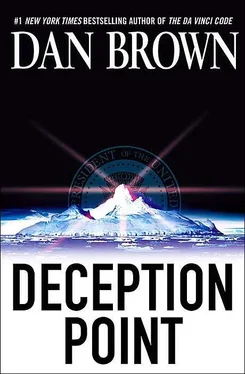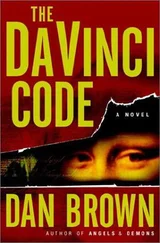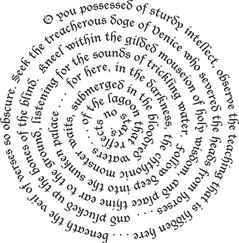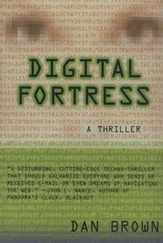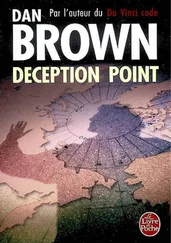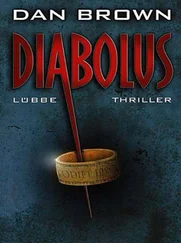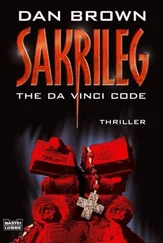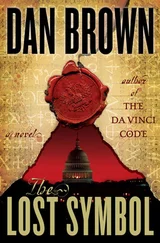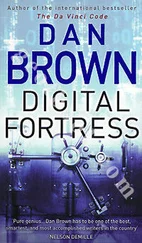“Extraterrestrial life?” she had heard one of them exclaim. “Do you know what that means?”
“Yes,” another replied. “It means we’re going to win this election.”
As Rachel approached the dramatic press area, she imagined the impending announcement and couldn’t help but wonder if her father really deserved the presidential steamroller that was about to blindside him, crushing his campaign in a single blow.
The answer, of course, was yes.
Whenever Rachel Sexton felt any soft spot for her father, all she had to do was remember her mother. Katherine Sexton. The pain and shame Sedgewick Sexton had brought on her was reprehensible... coming home late every night, looking smug and smelling of perfume. The feigned religious zeal her father hid behind—all the while lying and cheating, knowing Katherine would never leave him.
Yes, she decided, Senator Sexton was about to get exactly what he deserved.
The crowd in the press area was jovial. Everyone held beers. Rachel moved through the crowd feeling like a coed at a frat party. She wondered where Michael Tolland had gone.
Corky Marlinson materialized beside her. “Looking for Mike?”
Rachel startled. “Well... no... sort of.”
Corky shook his head in disgust. “I knew it. Mike just left. I think he was headed back to go grab a few winks.” Corky squinted across the dusky dome. “Although it looks like you can still catch him.” He gave her a puggish smile and pointed. “Mike becomes mesmerized every time he sees water.”
Rachel followed Corky’s outstretched finger toward the center of the dome, where the silhouette of Michael Tolland stood, gazing down into the water in the extraction pit.
“What’s he doing?” she asked. “That’s kind of dangerous over there.”
Corky grinned. “Probably taking a leak. Let’s go push him.”
Rachel and Corky crossed the darkened dome toward the extraction pit. As they drew close to Michael Tolland, Corky called out.
“Hey, aqua man! Forget your swimsuit?”
Tolland turned. Even in the dimness, Rachel could see his expression was uncharacteristically grave. His face looked oddly illuminated, as if he were being lit from below.
“Everything okay, Mike?” she asked.
“Not exactly.” Tolland pointed into the water.
Corky stepped over the pylons and joined Tolland at the edge of the shaft. Corky’s mood seemed to cool instantly when he looked in the water. Rachel joined them, stepping past the pylons to the edge of the pit. When she peered into the hole, she was surprised to see specks of blue-green light shimmering on the surface. Like neon dust particles floating in the water. They seemed to be pulsating green. The effect was beautiful.
Tolland picked up a shard of ice off the glacial floor and tossed it into the water. The water phosphoresced at the point of impact, glowing with a sudden green splash.
“Mike,” Corky said, looking uneasy, “please tell me you know what that is.”
Tolland frowned. “I know exactly what this is. My question is, what the hell is it doing here ?”
“We’ve got flagellates,” Tolland said, staring into the luminescent water.
“Flatulence?” Corky scowled. “Speak for yourself.”
Rachel sensed Michael Tolland was in no joking mood.
“I don’t know how it could have happened,” Tolland said, “but somehow this water contains bioluminescent dinoflagellates.”
“Bioluminescent what?” Rachel said. Speak English.
“Monocelled plankton capable of oxidizing a luminescent catalyst called luceferin.”
That was English?
Tolland exhaled and turned to his friend. “Corky, there any chance the meteorite we pulled out of that hole had living organisms on it?”
Corky burst out laughing. “Mike, be serious!”
“I am serious.”
“No chance, Mike! Believe me, if NASA had any inkling whatsoever that there were extraterrestrial organisms living on that rock, you can be damn sure they never would have extracted it into the open air.”
Tolland looked only partially comforted, his relief apparently clouded by a deeper mystery. “I can’t be for sure without a microscope,” Tolland said, “but it looks to me like this is a bioluminescent plankton from the phylum Pyrrophyta. Its name means fire plant. The Arctic Ocean is filled with it.”
Corky shrugged. “So why’d you ask if they were from space?”
“Because,” Tolland said, “the meteorite was buried in glacial ice— fresh water from snowfalls. The water in that hole is glacial melt and has been frozen for three centuries. How could ocean creatures get in there?”
Tolland’s point brought a long silence.
Rachel stood at the edge of the pool and tried to get her mind around what she was looking at. Bioluminescent plankton in the extraction shaft. What does it mean?
“There’s got to be a crack somewhere down there,” Tolland said. “It’s the only explanation. The plankton must have entered the shaft through a fissure in the ice that allowed ocean water to seep in.”
Rachel didn’t understand. “Seep in? From where?” She recalled her long IceRover ride in from the ocean. “The coast is a good two miles from here.”
Both Corky and Tolland gave Rachel an odd look. “Actually,” Corky said, “the ocean is directly underneath us. This slab of ice is floating.”
Rachel stared at the two men, feeling utterly perplexed. “Floating? But... we’re on a glacier.”
“Yes, we’re on a glacier,” Tolland said, “but we’re not over land. Glaciers sometimes flow off a landmass and fan out over water. Because ice is lighter than water, the glacier simply continues to flow, floating out over the ocean like an enormous ice raft. That’s the definition of an ice shelf ... the floating section of a glacier.” He paused. “We’re actually almost a mile out to sea at the moment.”
Shocked, Rachel instantly became wary. As she adjusted her mental picture of her surroundings, the thought of standing over the Arctic Ocean brought with it a sense of fear.
Tolland seemed to sense her uneasiness. He stamped his foot reassuringly on the ice. “Don’t worry. This ice is three hundred feet thick, with two hundred of those feet floating below the water like an ice cube in a glass. Makes the shelf very stable. You could build a skyscraper on this thing.”
Rachel gave a wan nod, not entirely convinced. The misgivings aside, she now understood Tolland’s theory about the origins of the plankton. He thinks there’s a crack that goes all the way down to the ocean, allowing plankton to come up through it into the hole. It was feasible, Rachel decided, and yet it involved a paradox that bothered her. Norah Mangor had been very clear about the integrity of the glacier, having drilled dozens of test cores to confirm its solidity.
Rachel looked at Tolland. “I thought the glacier’s perfection was the cornerstone of all the strata-dating records. Didn’t Dr. Mangor say the glacier had no cracks or fissures?”
Corky frowned. “Looks like the ice queen muffed it.”
Don’t say that too loudly, Rachel thought, or you’ll get an ice pick in the back.
Tolland stroked his chin as he watched the phosphorescing creatures. “There’s literally no other explanation. There must be a crack. The weight of the ice shelf on top of the ocean must be pushing plankton-rich sea-water up into the hole.”
One hell of a crack, Rachel thought. If the ice here was three hundred feet thick and the hole was two hundred feet deep, then this hypothetical crack had to pass through a hundred feet of solid ice. Norah Mangor’s test cores showed no cracks.
Читать дальше
